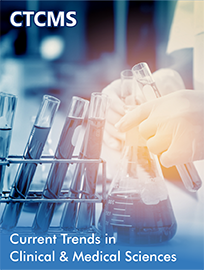 Mini Review
Mini Review
Progress and Challenges in Clinical AAV Gene Therapy for Neurological and Neuromuscular Disorders
Megan Baird1,2*, Maura Schwartz1,2*, Kathrin Meyer1,2,3** and Nicolas Wein1,2,3**
1Center for Gene Therapy, Abigail Wexner Research Institute at Nationwide Children’s Hospital, USA
2Biomedical Sciences Graduate Program, The Ohio State University College of Medicine, USA
3Department of Pediatrics, The Ohio State University, USA
*Megan Baird and Maura Schwartz contributed equally to this work.
Kathrin Meyer and Nicolas Wein, The Center for Gene Therapy, The Research Institute, Nationwide Children’s Hospital 700 Children’s Drive, Columbus, Ohio
Received Date: December 01, 2020; Published Date: December 21, 2020
Abstract
The field of gene therapy is growing at a rapid pace. The discovery and modification of adeno-associated viruses (AAV) as gene therapy vectors has allowed for the development of novel treatments for neurological and neuromuscular disorders. AAV based gene therapy techniques can be utilized to add, replace, or modify genes and their expression in patients, thus providing a potential beneficial therapeutic effect. In many cases, gene therapy has the promising power to change the natural course of debilitating and fatal diseases and give patients a new outcome on life. This mini review will give a brief overview of the AAV gene therapy field, highlighting FDA approved gene therapies and selected current in-clinic AAV-mediated therapeutics for neurological and neuromuscular diseases for which interim data are available. These therapies and the ongoing clinical trials are currently laying the groundwork for future gene therapy strategies and clinical trial design. Ultimately, they will inform the field on promises and limitations that still need to be overcome.
Keywords: Gene Therapy; AAV; Neuromuscular Disorders
Abbreviations: AAV- Adeno-associated virus; RAAV- Recombinant adeno-associated virus; ITRs- Inverted terminal repeats. FDA-Food and Drug Administration; CNS-Central nervous system; IV- Intravenous; NCL-Neuronal ceroid lipofuscinosis; CSF- Cerebrospinal fluid; IT- Intrathecal; PDParkinson’s Disease; ALS- Amyotrophic Lateral Sclerosis; DMD- Duchenne Muscular Dystrophy
-
Megan Baird, Maura Schwartz, Kathrin Meyer, Nicolas Wein. Progress and Challenges in Clinical AAV Gene Therapy for Neurological and Neuromuscular Disorders. Curr Tr Clin & Med Sci. 2(2): 2020. CTCMS.MS.ID.000535.
-

This work is licensed under a Creative Commons Attribution-NonCommercial 4.0 International License.






